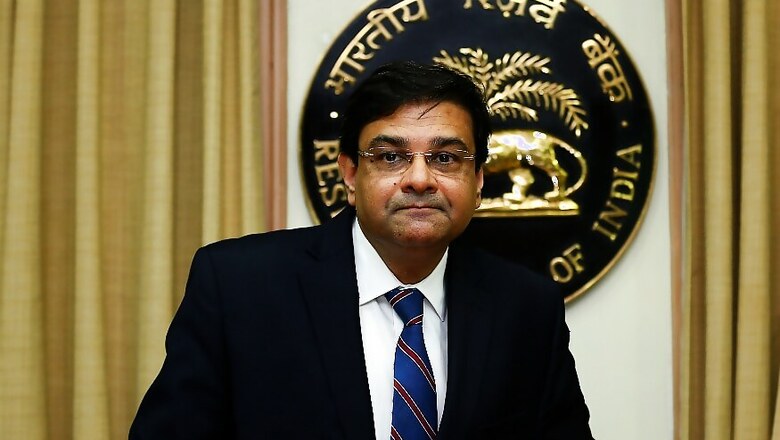
views
New Delhi: The Section 7 of the RBI Act has been hogging the headlines following the reported differences between the central bank and the finance ministry. Being called an extreme step, it empowers the government to issue directions to the Reserve Bank in “public interest”.
The Section 7 (1) of the Reserve Bank of India Act, 1934, however, has never been invoked by the government so far. It is being speculated that RBI Governor Urjit Patel may choose to resign if a specific direction is issued under this section.
The Finance Ministry, located in the North Block here, has cited the never-before-used power of issuing directions to RBI Governor to seek a resolution to differences with the central bank, sources with knowledge of the development said.
Section 7 pertains to management. "The Central Government may from time to time give such directions to the Bank as it may, after consultation with the Governor of the Bank, consider necessary in the public interest," says Section 7(1) of the RBI Act, 1934.
Further, Section 7 (2) gives the government powers to entrust the running of the RBI to its Central Board of Directors.
Subject to any such directions, the general superintendence and direction of the affairs and business of the Bank shall be entrusted to a Central Board of Directors which may exercise all powers and do all acts and things which may be exercised or done by the Bank," it says.
Sources said the Finance Ministry wrote three separate letters in the past few weeks to the RBI on issues ranging from Prompt Corrective Action (PCA) framework to liquidity management and sought consultation under Section 7 of the RBI Act.
However, sources insisted that the government has not taken any action of issuing any specific direction and has only initiated consultations with the central bank on unresolved issues.
Differences between the government and the RBI have cropped up over various issues, including the central bank's handling of weak public sector banks under the PCA framework and ways to resolve bad loans in the power sector. There are also apparent differences between them over tight liquidity and setting up of an independent payments regulator.
The government wants RBI to carve out exemption for power companies under the PCA framework that outlines triggers for declaring a loan account as stressed or NPA, sources said.
One of the letters pertained to use of the RBI's capital reserves for providing liquidity to the market and another was for relaxing constraints on banks for loans to small and medium enterprises (SMEs).
Last year, former RBI Governor D Subbarao had stated that Section 7 has never been used in more than 80 years history of the central bank.
The RBI Act also empowers the central government to remove Governor, Deputy Governor or any other Director. The RBI Governor and the four Deputy Governors are appointed by Prime Minister headed Appointments Committee of the Cabinet (ACC).
The ACC also appoints independent directors on the RBI's Central Board. It had recently named RSS ideologue S Gurumurthy and cooperative movement veteran S K Marathe.



















Comments
0 comment